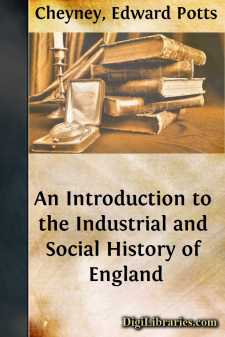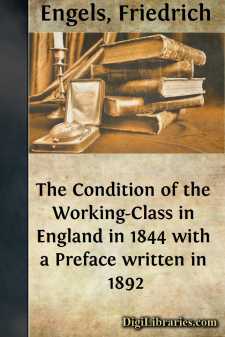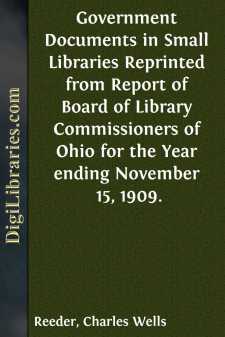Political Science
Political Science Books
Sort by:
by:
Edmund Burke
SPEECH. The times we live in, Mr. Speaker, have been distinguished by extraordinary events. Habituated, however, as we are, to uncommon combinations of men and of affairs, I believe nobody recollects anything more surprising than the spectacle of this day. The right honorable gentleman whose conduct is now in question formerly stood forth in this House, the prosecutor of the worthy baronet who spoke...
more...
by:
Edmund Burke
PREFACE. The following speech has been much the subject of conversation, and the desire of having it printed was last summer very general. The means of gratifying the public curiosity were obligingly furnished from the notes of some gentlemen, members of the last Parliament. This piece has been for some months ready for the press. But a delicacy, possibly over-scrupulous, has delayed the publication to...
more...
by:
Edmund Burke
LETTER TO HIS GRACE THE DUKE OF PORTLAND. My dear Lord,—The paper which I take the liberty of sending to your Grace was, for the greater part, written during the last session. A few days after the prorogation some few observations were added. I was, however, resolved to let it lie by me for a considerable time, that, on viewing the matter at a proper distance, and when the sharpness of recent...
more...
FREEDOM IN SERVICE I [Reprinted, with the addition of References, from the Morning Post of August 20th, 1915.] I. UNIVERSAL OBLIGATION TO SERVE "The military system of the Anglo-Saxons is based upon universal service, under which is to be understood the duty of every freeman to respond in person to the summons to arms, to equip himself at his own expense, and to support himself at his own charge...
more...
by:
Edmund Burke
INTRODUCTION Edmund Burke was born at Dublin on the first of January, 1730. His father was an attorney, who had fifteen children, of whom all but four died in their youth. Edmund, the second son, being of delicate health in his childhood, was taught at home and at his grandfather’s house in the country before he was sent with his two brothers Garrett and Richard to a school at Ballitore, under...
more...
by:
Walter Bagehot
There is a great difficulty in the way of a writer who attempts to sketch a living Constitution—a Constitution that is in actual work and power. The difficulty is that the object is in constant change. An historical writer does not feel this difficulty: he deals only with the past; he can say definitely, the Constitution worked in such and such a manner in the year at which he begins, and in a manner...
more...
by:
Daniel Defoe
INTRODUCTION Atalantis Major is a thinly veiled allegory describing the November 1710 election of the representative Scottish peers. The circumstances which surrounded this election were produced by the outcome of the previous month's General Election—a landslide for the Tories—and, to understand these circumstances, the impact of that Tory victory must be seen within the context of the...
more...
GROWTH OF THE NATION To the Middle of the Fourteenth Century —The British Isles lie northwest of the Continent of Europe. They are separated from it by the Channel and the North Sea, at the narrowest only twenty miles wide, and at the broadest not more than three hundred. The greatest length of England from north to south is three hundred and sixty-five miles, and its greatest breadth some two...
more...
by:
Friedrich Engels
INTRODUCTION The history of the proletariat in England begins with the second half of the last century, with the invention of the steam-engine and of machinery for working cotton. These inventions gave rise, as is well known, to an industrial revolution, a revolution which altered the whole civil society; one, the historical importance of which is only now beginning to be recognised. England is the...
more...
The problem of government publications in the small libraries has been discussed at much length by librarians, but it is still far from a definite solution. In fact, there can be no general settlement of many phases of this question, for each and every library must decide what its own policy and attitude shall be toward this class of publications. It is generally admitted that some libraries ought to...
more...











